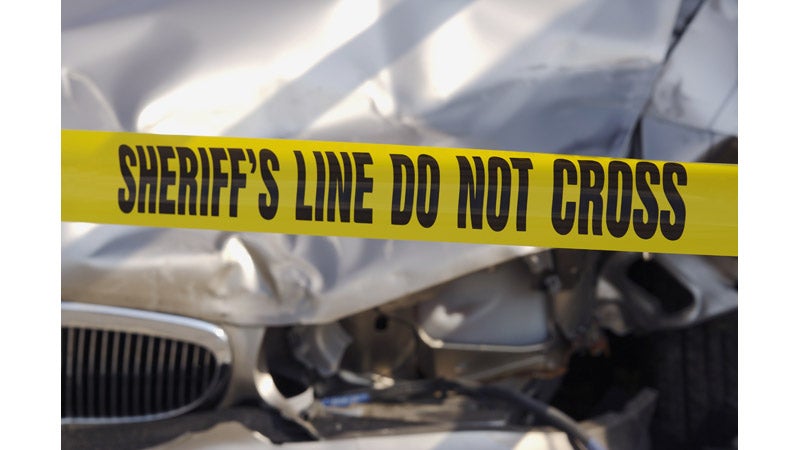Allegiance to fight for pledge
Published 12:00 am Wednesday, July 3, 2002
By RACHEL HARRIS
RESERVE – Infuriated local politicians and River Parishes citizens await the upcoming decision of the 9th Circuit Court of Appeals regarding Wednesday’s ruling which said the reciting of the Pledge of Allegiance in public schools is unconstitutional because of the phrase “under God” violates the separation of church and state.
The judge who made the ruling, Alfred Goodwin, issued a stay Thursday pending further appeals. The case was filed by a California man, Michael Newdow, whose daughter attends public schools in Elk Grove, Calif.
The phrase “under God” was added in 1954 by Congress as proposed by Pres. Dwight D. Eisenhower. The U.S. Supreme Court has dealt with the pledge issue twice since the 1954 addition. The first ruling, 1940, stated that students in public schools could be forced to say the pledge or salute the flag.
There was a reverse decision in a 1943 case in which the court ruled an individual can refuse to salute the flag or say the pledge.
For as long as most local people can remember, the pledge has been a normality in the school systems and regarded as part of the morning routine. Every public school student in St. John the Baptist Parish recites the pledge, which is said daily over the public address system, Superintendent Michael Coburn said.
Coburn said the pledge has never been a problem in the school system. He said he has not encountered any students who were unwilling to participate. John L. Ory Elementary School plays a video of the pledge every morning.
Students who attend St. Charles Parish and St. James Parish schools also recite the pledge each morning. Destrehan High School and Hahnville High School play a video production of the Pledge of Allegiance each morning as part of the Channel One program.
“We are trying to promote patriotism, especially in light of recent events. I don’t understand taking it out. We promote patriotic spirit by playing the pledge every morning,” DHS television production teacher Donald Diodene said.
HHS Assistant Principal Winona Champagne said she believes the 9th Circuit Court of Appeals case will not affect the Louisiana public school systems.
St. John the Baptist Parish School Board member Russ Wise called the case “off-the-wall,” “silly,” and “more than a little wacky.”
“I believe this country was founded on a belief in a higher power. We have, over the years, distorted that. The Constitution does not say you have to separated God from the government. It just says you can’t put in place a government religion,” he said. “The Constitution does not say that we are meant to have a godless country.”
Wise said he believes the word following “under God”- “indivisible” is the real problem.
Local, state and national politicians expressed outrage of the decision.
U.S. Rep. David Vitter said he could not believe the court would disparage the pledge and the flag, the symbols we are fighting for in this time of war. He said he hopes this case will be dismissed along with the astonishing number of other cases overturned in the 9th U.S. Circuit Court of Appeals.
Vitter co-sponsored a resolution that will come before the House of Representatives to condemn the decision.
U.S. Sen. John Breaux said, “The Pledge of Allegiance is part of the very fabric of America. The pledge is a fundamental expression of our patriotism and deep devotion to the democratic principles upon which this nation was founded.”
Sen. Louis Lambert said the case was “absolutely unbelievable.” As President Pro Tem of the state senate, Lambert said he leads the pledge and will only quit saying “under God” if a gag is placed over his mouth.
“Any time a judge rules against 99 percent of the people, the time might come to remove judges,” he said. “This has to stop somewhere.”
St. James Parish District Attorney Anthony Falterman said, “The 9th Circuit is the most liberal and most reversed circuit. There is no way it will pass. It’s ludicrous. The writers of the Constitution never intended it to be interpreted that way. It will absolutely be reversed.”
Local religious leaders were also offended by the new case brought against the phrase “under God” in the pledge.
“The acknowledgement of God in our pledge is a reflection of our history and not an imposition of religion,” Rev. Tim Patton, youth minister at First Baptist Church of LaPlace, said. “While the founders of our nation assured a person’s right to not have a government-sanctioned religion imposed on the people, they felt as many do today, that God is the foundation of our way of life. The phrase “under God” reflects this aspect of our history, nothing more.”
Rev. Dwight Munn, of the First Baptist Church of Luling, said, “It seems to me that this man misunderstood the establishment clause. One individual enforced his will on a multi-state area, one that would have the least people proclaiming religious stand. If you decide to fly the flag, you accept her as she is, you accept the heritage and proudly proclaim it.”
The pledge was originally written in 1892 by socialist editor and clergyman Francis Bellamy in the juvenile periodical “The Youth’s Companion.” The words of the first pledge read “I pledge allegiance to my Flag and the Republic for which it stands; one nation indivisible, with liberty and Justice for all.”
The words “the flag of the United States” replaced “my flag” in 1924. The new words were implemented on Flag Day.
The pledge was officially recognized by the government in 1942.





